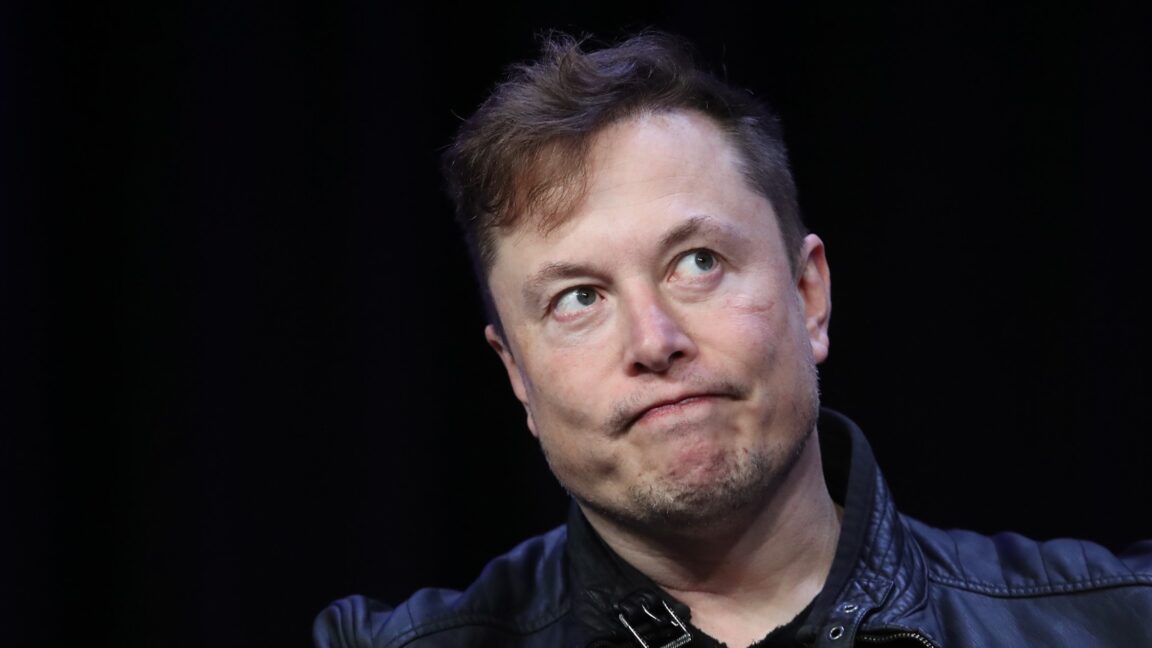SEC sues Elon Musk, says he cheated Twitter investors out of $150 million
Musk's 2022 Twitter stock buys SEC sues Elon Musk, says he cheated Twitter investors out of $150 million SEC: Late disclosure helped Musk buy Twitter shares at $150 million discount. Jon Brodkin Jan 15, 2025 11:10 am | 12 Elon Musk speaks at the Satellite Conference and Exhibition on March 9, 2020 in Washington, DC. Credit: Getty Images | Win McNamee Elon Musk speaks at the Satellite Conference and Exhibition on March 9, 2020 in Washington, DC. Credit: Getty Images | Win McNamee Story textSizeSmallStandardLargeWidth *StandardWideLinksStandardOrange* Subscribers only Learn moreThe Securities and Exchange Commission sued Elon Musk yesterday over his late disclosure of a Twitter stock purchase in early 2022. Before Musk bought the whole company, he purchased a 9 percent stake in Twitter and failed to disclose it within 10 days as required under US law."Defendant Elon Musk failed to timely file with the SEC a beneficial ownership report disclosing his acquisition of more than five percent of the outstanding shares of Twitter's common stock in March 2022, in violation of the federal securities laws," said the SEC lawsuit in US District Court for the District of Columbia. "As a result, Musk was able to continue purchasing shares at artificially low prices, allowing him to underpay by at least $150 million for shares he purchased after his beneficial ownership report was due."Twitter's stock price rose 27 percent once Musk belatedly disclosed his stake, the lawsuit said. "During the period that Musk was required to publicly disclose his beneficial ownership but had failed to do so, he spent more than $500 million purchasing additional shares of Twitter common stock," it said.Musk underpaid Twitter investors for those shares, and "investors who sold Twitter common stock during this period did so at artificially low prices and thus suffered substantial economic harm," the SEC said.Musk has repeatedly claimed the SEC is harassing him, saying last month that "the SEC is just another weaponized institution doing political dirty work." Musk's lawyer said he refused an offer from the SEC to settle the case for a fine. Musk previously tried to avoid giving a third round of testimony in the investigation.The lawsuit was filed in the waning days of the Biden administration, and the next administration is less likely to aggressively pursue a charge against Musk. President-elect Donald Trump picked Musk to lead a new Department of Government Efficiency, or "DOGE," as part of a plan to eliminate regulations and restructure federal agencies.New SEC leadershipSEC Chair Gary Gensler will be leaving the agency, and Trump's pick to replace him, Paul Atkins, testified to Congress in 2019 that the SEC should reduce its disclosure requirements. With Gensler and one other Democrat leaving, Republicans will have a 2-1 majority on the SEC while the Senate considers Trump's nominee, a Wall Street Journal article said.This doesn't necessarily mean that the lawsuit will be dismissed right away, according to the Journal. The disclosure rule is "routinely enforced," the article said."The new claims against Musk might be hard for a friendlier administration to immediately dismiss," the WSJ wrote. "That is because the measure Musk allegedly violated is what regulators call a strict-liability rule. Just as police officers don't have to prove drivers intended to speed to issue a ticket, regulators don't have to show an investor meant to violate [Rule] 13D to bring an enforcement action."The SEC has said it obtained thousands of documents as part of its investigation and that it was probing more than just the late disclosure. The SEC told a court in October 2023 that its investigation "pertains to considerably more than the timing and substance of a particular SEC filing; it also relates to all of Musk's purchases of Twitter stock in 2022 and his 2022 statements and SEC filings."Musk's lawyer said last month that the SEC threatened to bring "charges on numerous counts" if Musk didn't agree to settle. But the lawsuit filed yesterday includes only the late-disclosure charge. Demanding a jury trial, the SEC seeks a civil penalty and disgorgement of Musk's unjust enrichment, plus interest.Jon BrodkinSenior IT ReporterJon BrodkinSenior IT Reporter Jon is a Senior IT Reporter for Ars Technica. He covers the telecom industry, Federal Communications Commission rulemakings, broadband consumer affairs, court cases, and government regulation of the tech industry. 12 Comments




